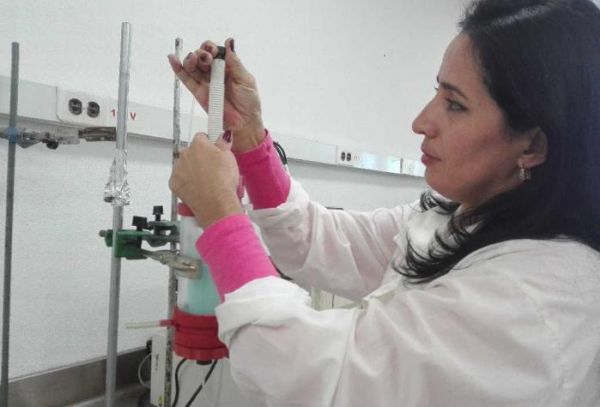
range of biological reagents. (Photo: Arelys García).
The fact that Cuba has to buy raw materials, equipment, spare parts and technologies in distant markets is a concrete expression of the effect of the U.S. economic, commercial and financial blockade on the biotechnology industry, a strategic sector for the island’s economic development.
Raúl Armas Ramos, director of the Center for Genetic Engineering and Biotechnology (CIGB) of Sancti Spíritus, said that this hostile policy has affected research and productions in that scientific institution, created at the initiative of the historical leader of the Cuban Revolution, Fidel Castro, almost 30 years ago.
According to Armas Ramos the production of diagnostic test strip kits for the detection of celiac disease (permanent gluten intolerance, protein present in some cereals such as wheat, barley and rye) is limited due to the non-existence of a new supplier of the raw material necessary for its manufacture.
In this regard, the director of Sancti Spiritus’s CIGB said that given the impossibility of buying the raw material from the usual supplier, negotiations were made with US companies, but they refused to sell us the product due to the US economic restrictions on the island.
Therefore, Cuba is looking for suppliers in Europe and Asia, which delays the acquisition process, which involves evaluating the quality standards of the raw material for its subsequent use in the production of the diagnostic unit.
The Center for Genetic Engineering and Biotechnology of Sancti Spíritus produces a wide range of biological reagents, used by the Cuban biotechnology industry in the control tests of its production processes.
 Escambray ENGLISH EDITION
Escambray ENGLISH EDITION





Escambray reserves the right to publish comments.